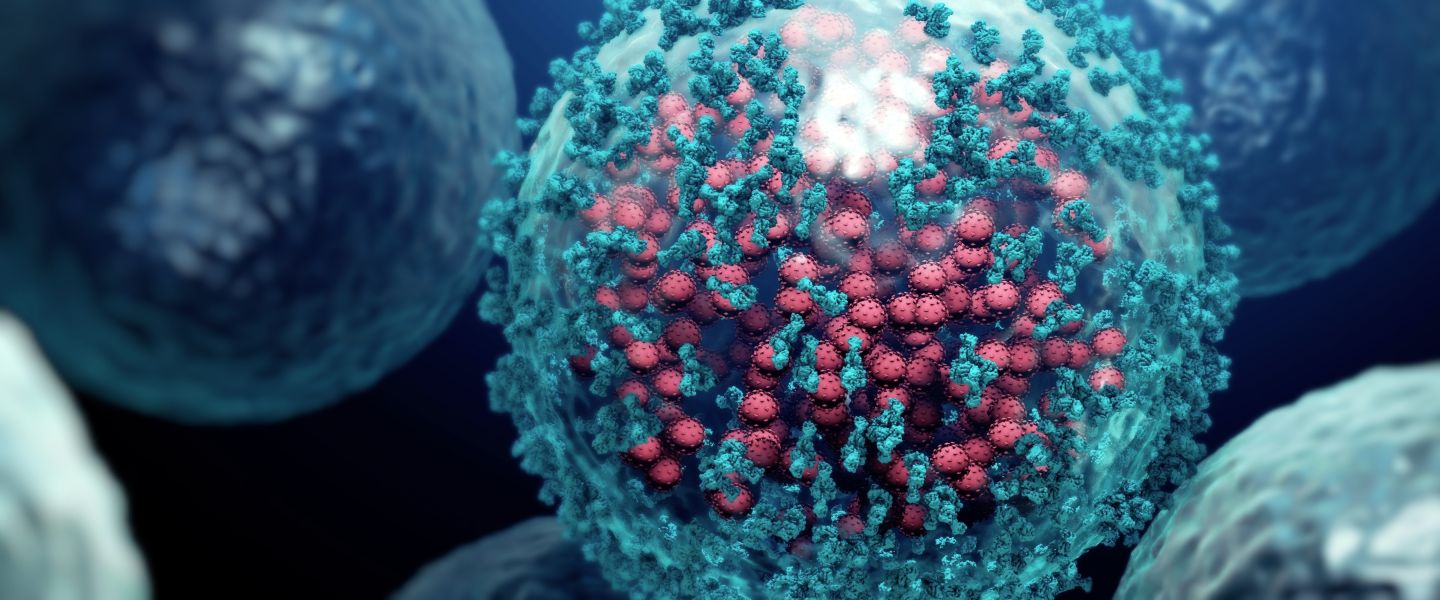SHARING / REPOSTING GUIDELINES: We're very happy to have posts/articles shared as direct links.
However, if you are replicating and re-posting information from this website or our posts, Abbey requests that you:
A) Only ever share articles in part (not in full). (eg. You can lift a paragraph as a way of introducing your readers to the topic) B) Be sure to always provide a direct link/URL back to the full original article here on the MyHealingCommunity.com website. Thanks in advance for your co-operation when sharing and re-posting any and all information that appears on this website.
Autophagy can both promote and inhibit cancer growth, depending on the context and stage of the disease
Author Credit: The information in this post was originally shared to members of the Healing Cancer Study Support Group in April 2023. Permission to share the information here on MyHealingCommunity.com was granted by the author Dr. Daniel Thomas.
Exploiting Autophagy's Dual Roles: A Novel Approach To Cancer Treatment
- Dr. Daniel Thomas, DO, MSCombining an autophagy inducer and inhibitor for cancer treatment may seem counterintuitive at first, but it could potentially be a viable strategy under specific circumstances. The rationale behind this approach is to exploit the dual roles of autophagy in cancer development and progression.
Autophagy can both promote and inhibit cancer growth, depending on the context and stage of the disease. In the early stages of cancer, autophagy can act as a tumor suppressor by eliminating damaged proteins and organelles, reducing oxidative stress, and maintaining genomic stability. On the other hand, in established tumors, autophagy can promote cancer cell survival and growth, particularly under conditions of nutrient deprivation, hypoxia, or chemotherapy-induced stress.
A combination therapy could involve using an autophagy inducer to promote the tumor-suppressive effects of autophagy in healthy cells or early-stage cancer cells. In parallel, an autophagy inhibitor could be used to block the tumor-promoting effects of autophagy in established cancer cells or those undergoing therapy-induced stress. This strategy aims to maximize the beneficial effects of autophagy while minimizing its potential to support cancer growth.
Several drugs and compounds have been identified to promote autophagy, either directly or indirectly. Some of these drugs are already in use for other medical conditions, while others are under investigation for their potential therapeutic effects in various diseases, including cancer, neurodegenerative disorders, and metabolic syndromes.
Here is a list of some drugs and compounds known to promote autophagy:
1. Carbamazepine: Carbamazepine is an anticonvulsant drug used to treat epilepsy and bipolar disorder. It has been shown to promote autophagy by modulating intracellular calcium levels and activating the AMPK pathway.
2. Lithium: Lithium is a medication commonly used to treat bipolar disorder. It has been shown to induce autophagy by inhibiting inositol monophosphatase, leading to the activation of autophagy-related genes.
3. Metformin: Metformin is a widely prescribed drug for treating type 2 diabetes. It has been shown to promote autophagy by inhibiting the mTOR pathway and activating AMP-activated protein kinase (AMPK), which is a positive regulator of autophagy.
4. Rapamycin (sirolimus): Rapamycin is an immunosuppressive drug used to prevent organ transplant rejection. It promotes autophagy by inhibiting the mammalian target of rapamycin (mTOR) pathway, a key negative regulator of autophagy.
5. Resveratrol: Resveratrol is a natural compound found in red wine, grapes, and some berries. It has been reported to induce autophagy via several mechanisms, including the activation of AMPK and sirtuin 1 (SIRT1).
6. Trehalose: Trehalose is a natural disaccharide sugar that can promote autophagy independently of the mTOR pathway. It has been studied for its potential neuroprotective effects in conditions like Parkinson’s and Alzheimer’s disease.
Several drugs and compounds have been identified to inhibit autophagy, and they may have potential therapeutic applications in various diseases, including cancer, where blocking autophagy might sensitize cancer cells to chemotherapy or other treatments.
Here is a list of some drugs and compounds known to inhibit autophagy:
1. Berberine: Berberine is an isoquinoline alkaloid found in various plants like goldenseal, barberry, and Oregon grape. It can inhibit autophagy through the regulation of the AMPK/mTOR signaling pathway.
2. Chloroquine and hydroxychloroquine: These antimalarial drugs are well-known autophagy inhibitors. They work by raising the pH in lysosomes, preventing the fusion of autophagosomes with lysosomes and ultimately blocking the autophagic degradation process.
3. Curcumin: Curcumin, a compound found in the spice turmeric, has been shown to inhibit autophagy in some cancer cell lines by modulating signaling pathways such as PI3K/Akt/mTOR.
4. Epigallocatechin-3-gallate (EGCG): EGCG is a catechin found in green tea. It has been reported to inhibit autophagy by modulating signaling pathways, such as the AMPK/mTOR pathway, and by interfering with the autophagosome-lysosome fusion process.
5. Pyrvinium pamoate: This anthelmintic drug is traditionally used to treat pinworm infections. In recent years, it has been discovered that pyrvinium pamoate also possesses autophagy-inhibiting properties. It inhibits autophagy through a unique mechanism that is distinct from other known autophagy inhibitors. It has been reported to inhibit autophagy by targeting the PINK1/Parkin-dependent mitophagy pathway, which is involved in the selective degradation of damaged mitochondria by autophagy. By inhibiting this pathway, pyrvinium pamoate can indirectly impair the autophagic process.
6. Quercetin: Quercetin is a flavonoid found in various fruits, vegetables, and grains. It has been shown to inhibit autophagy by suppressing the activity of class III PI3K and blocking autophagosome formation.
7. Resveratrol: Resveratrol, a polyphenol found in red wine, grapes, and some berries, has been shown to inhibit autophagy under certain conditions by modulating signaling pathways like mTOR, AMPK, and SIRT1.
In conclusion, the combination of an autophagy inducer and inhibitor for cancer treatment is a novel approach that exploits the dual roles of autophagy in cancer development and progression. By promoting autophagy’s tumor-suppressive effects in healthy or early-stage cancer cells and inhibiting autophagy’s tumor-promoting effects in established cancer cells, this strategy aims to maximize the benefits of autophagy while minimizing its potential to support cancer growth. While further research is needed to determine the optimal combinations and treatment protocols, this innovative approach has the potential to open new doors in the field of cancer therapy.
Dr. Daniel Thomas, DO, MS
Metabolic & Nutritional Medicine
Integrative Cancer Therapeutics
Mount Dora, Florida
Reference:
Liu T, Zhang J, Li K, Deng L and Wang H (2020) Combination of an Autophagy Inducer and an Autophagy Inhibitor: A Smarter Strategy Emerging in Cancer Therapy. Front. Pharmacol. 11:408.
https://doi.org/10.3389/fphar.2020.00408
Disclaimer:
This information is for educational purposes only and not intended or implied to be personal medical advice. That is for your personal physician to provide after he or she carefully studies the reference above.
DISCLAIMER: Any and all information in this post was gathered from published research in cell lines or animals, or from typical clinical use. It may not be complete, may not have not been verified in humans, and is NOT meant or given as medical advice, but only as a guide to further exploration.
Continue Reading...
BLOG
Mistletoe Expert Dr Marolia

Betulinic Acid Cancer Research Summary

Ashwagandha Targets Cancer Stem Cell Signalling Pathways and Supports Kill Strategies






